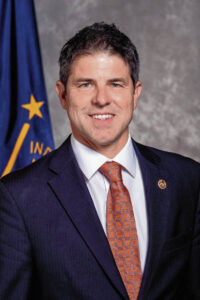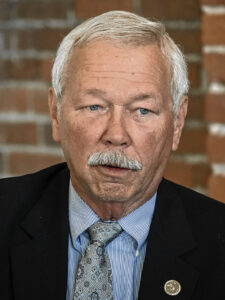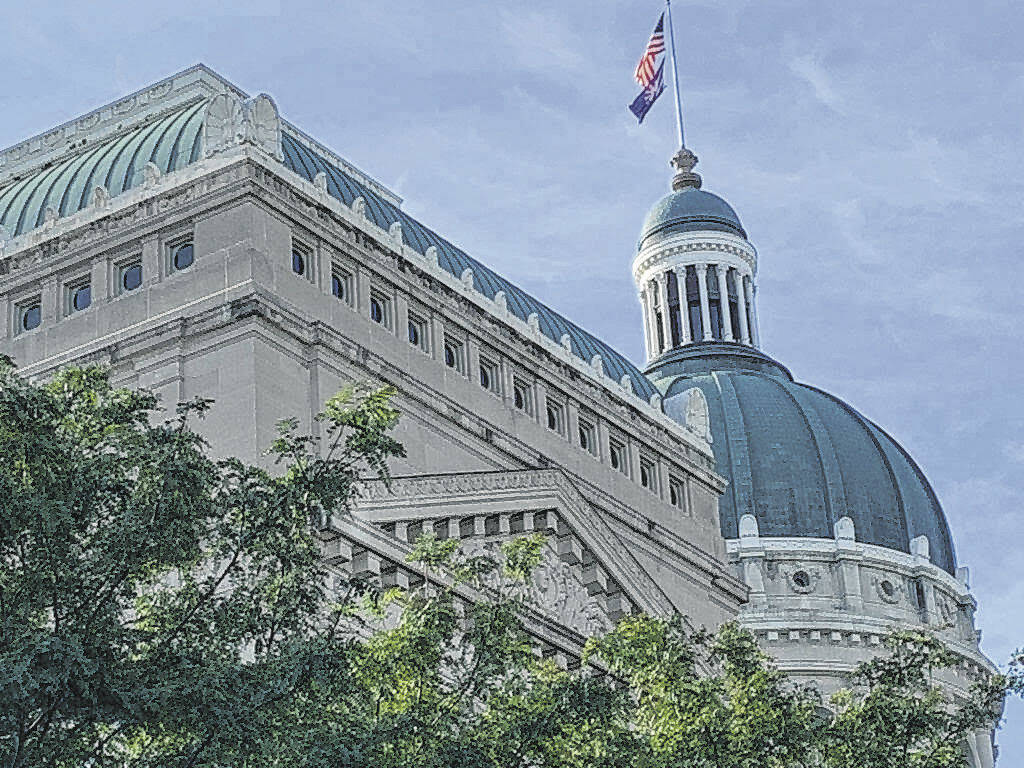Republican state lawmakers representing parts of Johnson County voted mostly in favor of a near-total abortion ban approved this past Friday, though they were divided at times as the ban made its way through the Indiana Statehouse.
Indiana became the first state in the nation last week to pass legislation banning most abortions since the U.S. Supreme Court overturned Roe v. Wade, the 1973 landmark case that had protected the right to abortion nationwide.
Throughout the process, Republicans agreed there should be a ban, but there was significant debate on how strict to make the ban and who should be penalized if an abortion is carried out illegally under the ban.
A majority of legislators ultimately decided abortions should be permitted in cases of rape and incest, before 10 weeks post-fertilization; to protect the life and physical health of the mother; or if a fetus is diagnosed with a lethal anomaly.
Legislators decided against creating new criminal penalties for doctors who perform abortions but left in place an existing penalty subjecting a doctor to a criminal charge for performing an illegal abortion.
The measure cleared the House in a 62-38 vote Aug. 5. All local representatives but Rep. John Jacob, R-Indianapolis voted against the ban, criticizing it for not going further in

completely banning abortion in Indiana.
Later that night the Senate concurred with the House’s version and voted 28-19 to send the bill to Gov. Eric Holcomb. All three senators representing portions of Johnson County voted for the abortion ban.
Holcomb signed the bill into law that night, almost immediately after it arrived on his desk. The near-total ban will take effect on Sept. 15.
House of Representatives
Though all but Jacob ultimately voted for the bill, Johnson County House members were divided on the strictness of the ban.
Rep. Michelle Davis, R-Whiteland, was one of three local lawmakers to vote in favor of an amendment that would have removed rape and incest as exceptions to the abortion ban. Rep. John Jacob, R-Indianapolis, and Rep. Chris May, R-Bedford, also voted in favor of the amendment. The amendment ultimately failed in a 39-61 vote and was not included in the bill.
In a statement, Davis said the new law strikes a balance between defending life and protecting Hoosier women.

“As a mother and lifelong advocate for the unborn, I believe all life is precious and worth protecting,” Davis said.” Indiana’s new law will save thousands of lives and potentially end 95% of abortions in our state.”
Davis also touted her support for a provision in the taxpayer refund bill that allocated roughly $75 million to social services programs for the health of both mothers and infants as a result of the state’s abortion ban.
“I also supported a substantial increase in funding for resources and proven programs focused on helping more families while boosting maternal and infant health,” she said. “I’m looking forward to continuing critical discussions about how Indiana can improve access to and affordability of contraception, and other health care services for Hoosier women.”
Jacob did not vote in favor of the final ban, saying on the House floor that it’s a “weak, pathetic bill that still allows babies to be murdered.”
“The body inside of the mom’s body is not her body. Let me repeat that: The body inside of the mom’s body is not her body. Not her body, not her choice,” he said. “Trying to end all abortion is not forced birth, but rather it is trying to end murdering children. It is the just and true thing to do.”
Jacob lost his Republican primary race in May, and his district will no longer cover Johnson County starting next year.
Rep. John Young, R-Franklin, who voted for the bill, said in a statement that the Supreme Court’s 1973 decision in Roe deprived states, citizens and legislatures across the country the opportunity to debate abortion for 50 years. The ban is the right way to start the conversation, he said.

“(The ban) takes a compassionate and thoughtful approach in advancing the state’s compelling interest in protecting unborn life, and supporting new and expecting mothers,” Young said. “It was made very clear during debate many individuals are pro-life but do not necessarily support total bans on abortion. I believe this legislation strikes the proper balance.”
Like Davis, Young also touted the allocation of funds to social service programs for the health of both mothers and infants.
“These funds will increase access to care and counseling for new moms and dads, crisis resources, childcare, and funding for community-based programs,” he said.
Abortion has been one of the most difficult and contentious issues to come before the Indiana General Assembly, and is a personal and emotional issue for many Hoosiers, Young said.
“This topic has been the most difficult and contentious issue to come before the legislature. I understand this is a personal and emotional issue for so many Hoosiers.”
On the House floor on Friday, Young said that the bill is not perfect but it serves the state’s “compelling interest,” he said.
“If the state’s interest isn’t in protecting life, why do we bother?” Young said.
May declined to comment for this story.

Senate
Senate President Pro Tem Rod Bray, R-Martinsville, said in a statement issued shortly after the ban passed both chambers that the state had taken “an enormous step forward” in protecting lives in the state of Indiana.
“The issues we have grappled with in this special session are extremely difficult, but we have taken an enormous step forward in protecting unborn lives in our state while ensuring we provide the resources our new and expectant mothers may need,” Bray said.
Sen. Jack Sandlin, R-Indianapolis, said Friday was a “monumental day” in Indiana. The state had made strides for the anti-abortion movement, he said in a statement.
“By closing abortion clinics and limiting abortions to only the most heartbreaking instances,

we are making massive strides for the pro-life movement,” Sandlin said. “These steps, combined with funding increases directed toward pregnancy services and easing the financial burden of adoption, put Indiana in a position to be a shining example of how to move past abortion and give mothers and families the ability to raise happy, healthy children.”
Sen. Greg Walker, R-Columbus, said in an interview with The Republic that he voted for the ban after “listening to hours of conversations and talking to friends and talking to constituents and reading hate mail and love mail.”
“In the balance of it, I wanted more than what the bill had,” Walker said.
Walker, along with Bray, had voted in favor of a previous version of the ban that would have required those seeking abortions due to rape and incest to sign a notarized affidavit attesting to the reason for the abortion. Sandlin did not vote on this version of the ban.
The House later removed this provision and added a number of amendments before sending the measure back to the Senate.

In previous comments, Walker had said that he believes public policy should minimize women’s ability to choose to get abortions. When asked earlier this week why he feels public policy should play a role in that decision, Walker said, stronger families will help
power the state’s economy and ensure its future.
“Just from a practical standpoint, you have to have population growth to grow your economy, to expand your opportunities, and so that’s one big public community interest (in banning abortions), but it’s certainly not the only one,” Walker said. “The continuation of the population of our country, whether it’s through immigration or whether it’s through natural childbirth, there’s a strong public interest in us existing into the future, and doing things to encourage healthy growth of families is good public policy.”
Andy East of The (Columbus) Republic, a sister paper to the Daily Journal, contributed to this report.





